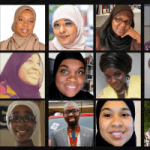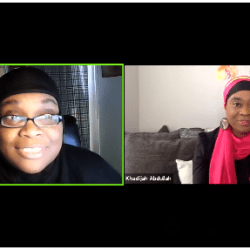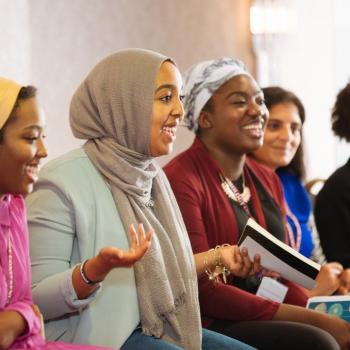Domestic violence is a tenacious fact in cultures across the globe. In Muslim communities, domestic violence serves as a formidable challenge to leaders and community members. There are numerous Quranic texts and ahadith describing the inviolable nature of the Muslim body. The Prophet Muhammad (SAW) said, “The Muslim is one from whose tongue and hand other Muslims are safe” (Al-Bukhari).
I will not be ashamed or embarrassed !This for all the women afraid to SPEAK OUT DOMESTIC VIOLENCE IS NEVER ACCEPTABLE!…Especially in ISLAM!! Don’t be afraid! I will stand up for U!
Posted by Justina Ramirez on Tuesday, September 29, 2015
Unfortunately, many in Muslim communities often overlook Islamic teachings preserving individual wellbeing and dignity when the body is Muslim and female. According to Peaceful Families & Project Sakinah 2011 DV Statistics, “nearly 2000 Muslim women survivors, executive directors reported that survivors experienced various forms of abuse including 82% emotional or verbal abuse, 65% financial abuse, 49% spiritual abuse, 74% physical abuse, and 30% sexual abuse.” Although there are efforts in Muslim communities across the country to root out domestic violence, cultural notions about women continue to make it difficult.
Supporting Victims
In her book, The Broken Half, author, and domestic violence advocate Sahar Abdulaziz uses her skill at writing fiction as social commentary for the presence of domestic violence in Muslim communities. In the novel, the main character Zahra must decide whether she will leave an abusive marriage. NbA Muslims asked Abdulaziz, who holds Certification as a Domestic Violence Counselor/Advocate, to provide some advice on ways friends, families, and the Muslim community can support victims of domestic violence.
This is a complicated question because when a victim does not leave the abusive relationship, many friends and family become easily frustrated and weary of trying to help. It is incredibly difficult to watch someone you love or care for stay in an abusive relationship. However, there are many proactive ways to help, and things one can do and say. Below is a standard starting list.
1. Learn whatever you can about domestic violence and sexual assault before setting out to speak with the individual you are trying to help. Knowledge is power. You will find a list of online agencies that can provide you accurate information below.
2. Be supportive and listen. Try not to be judgmental. Do not victim blame. Do not preach or throw around empty platitudes. Nobody being abused has time for self-righteous indignation from someone claiming they want to help. Victims of abuse are frightened- and for good reason. Leaving an abusive relationship is not only difficult, but can be dangerous as well as lethal. It can take victims many attempts at leaving before being able to actually make the break-safely, so keep all negative and irresponsible comments off the table, and keep all confidences. If you cannot, then you are not the right person to help so step away.
3. Reassure the victim that the situation they are in is not their fault; that you believe what they are telling you, you believe in them and that you are here to support them. Remind them that their actions didn’t cause the abuse, and no one has the right to abuse them- ever, nor can they change the abuser’s behavior.
4. Abusers control their victims with fear. Abuse is about power and control. Therefore, it is imperative that you respect the victim’s right to choose how best to handle the situation, even if it means them deciding to stay in the abusive relationship. This always has to remain their choice. It is the only way to gain back control of their lives.
5. Encourage the victim to make a safety plan. Because many victims are isolated, it helps if they are encouraged to participate in activities outside of the home if and when possible. Offer to store important paperwork or items for the abused victim so if they need to leave in a hurry they will still be able to have them assessable.
6. Many abusers control the money as well as the person, so gifting the victim gift cards, grocery store cards, bus or train passes, cash, or prepaid phones are all extremely helpful. If you have an old cell phone lying around that you can give the victim or can afford to purchase a prepaid phone for emergencies, this would also be a big help should they need to call 911.
7. Lend moral support if the victim needs to go to court, a domestic violence shelter, the hospital, etc.
Lastly, anyone trying to help someone out of an abusive relationship is now a potential target for abuse, threats or retaliation from the offender. Therefore you must always keep yourself safe at all times.
*DO NOT CONFRONT THE ABUSER. Confrontation can escalate the propensity of the violence against the victim or yourself. Additionally, you cannot rescue a person being abused. The victim must want to leave on his or her own accord. Leaving is solely their decision, and you must respect that, no matter what. Therefore practice safety first with yourself, your family, home, and pets, and do not hesitate to call the police if you feel you are in danger.
The National Domestic Violence Hotline: thehotline.org 24/7 Confidential Help 1-800-799-7233
The above information [and more] can be found on The National Domestic Violence Hotline website. If you are in an abusive relationship and need someone to speak to- do not hesitate to call this number or the other numbers provided below. Online Representatives are available 24/7. They will connect you to a Hotline Advocate. Stay safe!
More information can be found by visiting the Peaceful Families Project website, an organization committed to ending domestic violence in Muslim communities.












